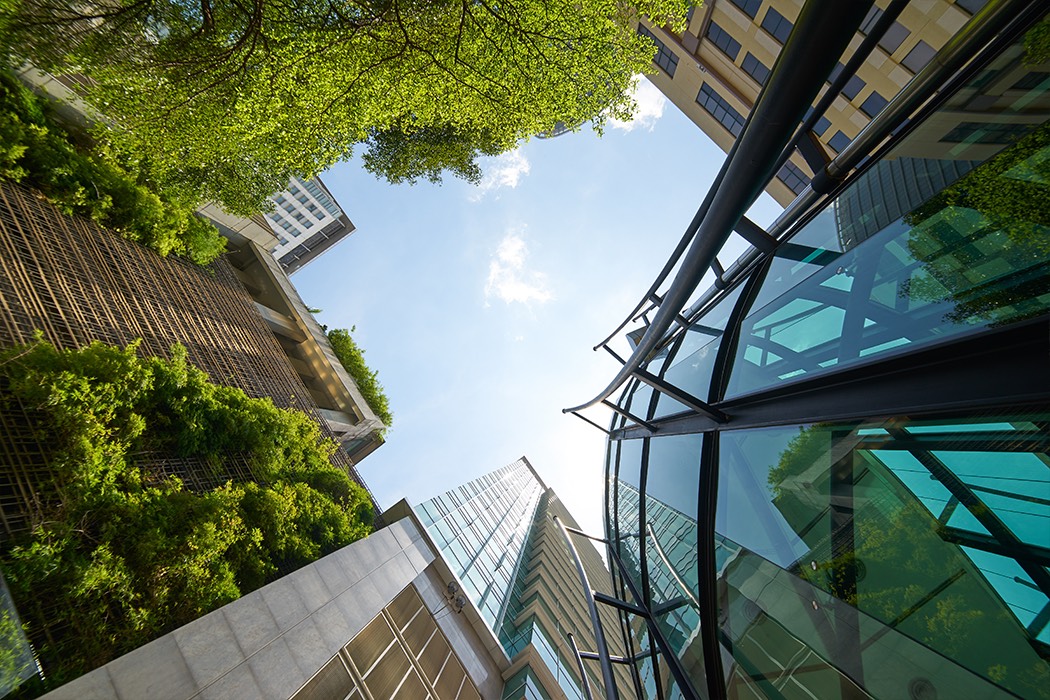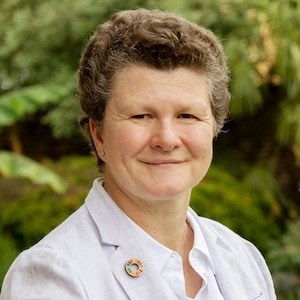Increasing our efforts to tackle the challenges of climate change
Carl Sizer, Head of UK Regions
Assessing the impact
The impact of climate change was highlighted across the UK - and globally - last year with record temperatures and floods, and the further decline of nature and biodiversity. The collective and comprehensive effort from individuals, communities, governments, and business showed that ambition was changing to action on the transition to a sustainable net zero future. And, over this past year, we’ve worked with our clients, our people, and our suppliers to help accelerate this change. But we remain conscious that we all, collectively, need to move faster to meet the challenges ahead.
In line with our global strategy, we strove to deliver sustained outcomes to complex challenges through a human-led, tech-powered approach. For example, evolving ESG commitments and regulatory requirements on sustainability reporting are changing the way we’re helping our clients navigate the transition and adapt to a world where progress is measured by more than just profit.
This is reflected in growing demand for both our ESG assurance and advisory services, including our dedicated Sustainability practice.
ESG and our people
The pace of change is gaining momentum, but it must move quicker still. That’s why we are committed to the ongoing upskilling of our people. We have an extensive ESG learning curriculum giving in-depth training, developed by PwC, for our staff in areas such as sustainability reporting, supply chain, and climate change. We also draw on external expertise, offering an ESG leadership course and a range of training opportunities from leading institutions.
Ensuring our people are equipped with the latest knowledge and tools means we can meet the evolving needs of our clients, put sustainability at the heart of both what we do and how we deliver to our clients, and bring wider societal benefits in line with our purpose.
The demand for the services of our dedicated Sustainability practice - including advising on sustainability reporting, finance, and strategy, and net zero transformation - have increased this year as climate issues and sustainability reporting requirements remain a key business issue. Across the UK firm, we have seen a significant increase in demand for ESG advice from across our lines of service - which reflects how intrinsically linked ESG is to business strategy.
As a result of the demand from clients for help with sustainability issues, we have seen an increase of 70% of people who have the required ESG skills and have delivered ESG-related work to our clients, since the same period last year.
To contribute to equipping the next generation of talent, we welcomed 25 graduates to our sustainability practice and over 50 interns to our ESG internship programme in the summer of 2022, as part of a wider cohort. For a six-week period the interns worked on client projects related to societal and environmental issues, including climate reporting and the transition to net zero.
Finding solutions
This year, we also worked with a number of public and private sector organisations, using both our client services and our convening power to drive understanding and action on climate change.
We launched the second iteration of our Green Jobs Barometer, continuing a national conversation that has included the UK, Scottish and Welsh governments, and more than 100 businesses, investors, policy makers, skills providers and local leaders across the UK. Through a series of roundtables, participants considered how we can work together to move to a greener jobs market and more sustainable economy, and we have shared their insights widely through the Barometer report.
Other highlights ranged from our work independently verifying the accuracy of Unilever’s sustainability data across their global operations, to working with the SBTi (Science Based Targets initiative) on guidance for the buildings sector to set emissions reduction targets in line with the Paris Agreement's aim to limit global warming to 1.5°C.
We were commissioned by the Climate Change Committee to examine the impact the transition will have on different households across the UK, including through improved health and productivity. We also led on the delivery of the Climate Finance Accelerator, which provides funding for low carbon projects in middle-income countries.
But it’s not just solutions for clients. As we continue to build on our longstanding corporate sustainability achievements, we are working towards our Net Zero by 2030 commitment to halve our emissions again, against a new FY19 baseline. One of our main focuses of FY23 was our Scope 3 emissions, collaborating with our suppliers to share best practices and encourage them to progress their own net zero initiatives. Our annual UK Supplier Sustainability Forum had over 80 attendees, including 55 supplier representatives from different companies across five sectors from travel to marketing.
Skills and tech are central to the solution
We kept the spotlight on how to achieve net zero through our Net Zero Economy Index. Additionally, our Green Jobs Barometer illustrated the scale of opportunities in the labour market, but also identified regional disparities so the right interventions can be made to ensure fairness.
Our State of Climate Tech report revealed the UK’s pre-eminent position as a source of funding for the companies that have the solutions to transition to clean energy and improved mitigation, adaptation and avoidance.
As part of our Building Trust in the Climate Transition series, we conducted research on carbon offsetting and what the rising cost of carbon offsets mean for business.
In a major piece of research that looks at closing the critical nature investment gap, we urged businesses to place nature on a par with climate change in their risk assessments, with more than half of global GDP moderately or highly dependent on nature.
Sustainable behaviours
In addition to our ongoing Sustainable Living at Home guide, Sustainability Champions, environmental volunteering, and energy saving webinars, 2023 has seen us create new ways to encourage our people to act on climate change - with a particular focus on the connection between nature and net zero. That action has included opening an edible garden in our London Embankment Place office and the launch of the new Global Centre for Nature Positive Business.
We’re also proud to have held our fifth Veganuary Workplace Challenge, which not only supports our people to try new plant-based options, but also highlights the ways we’ve reduced the carbon impact of our catering. Over 620 people participated in the challenge this year and since the challenge started over 2,400 Veganuary pledges have been made.
The power of a collective organisation to make a difference is what inspires us to look for new and innovative ways to engage with our people and wider stakeholders.


















